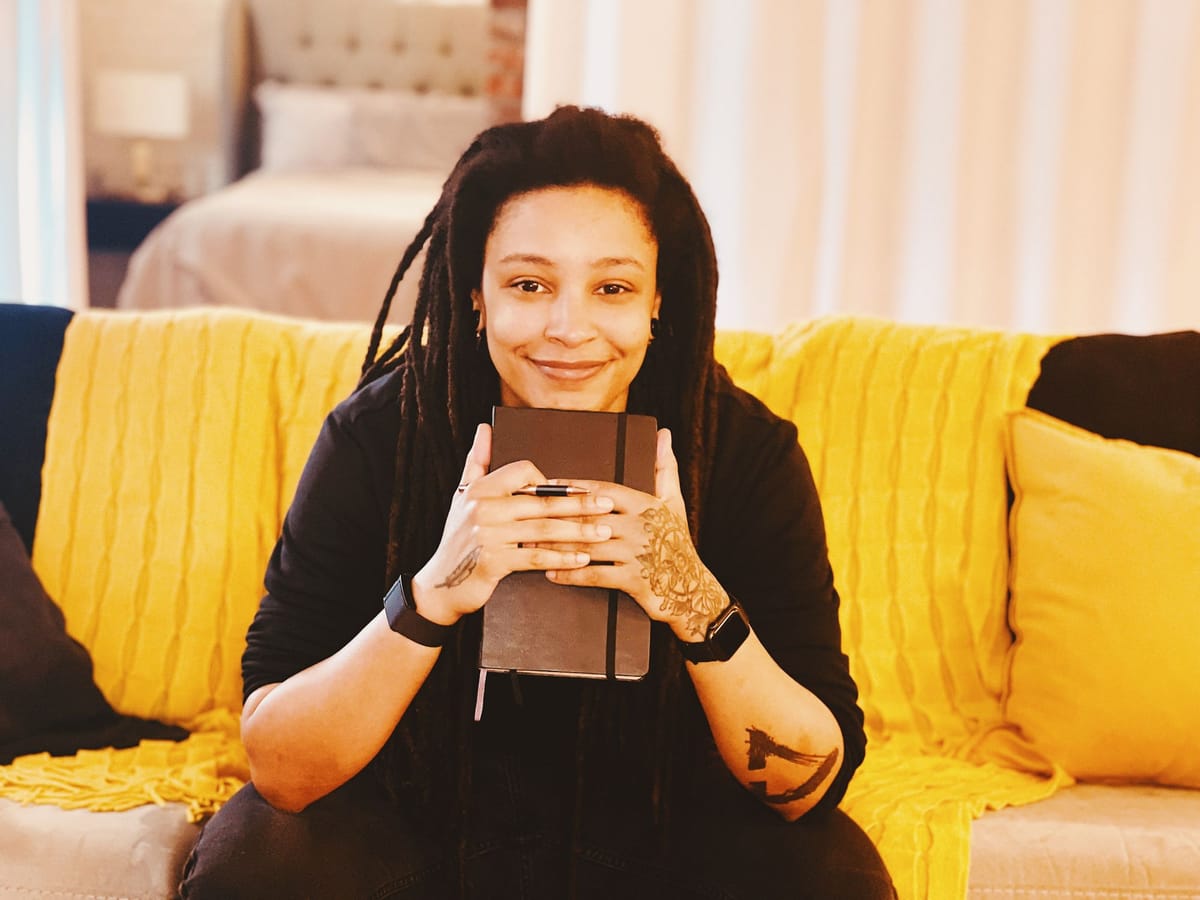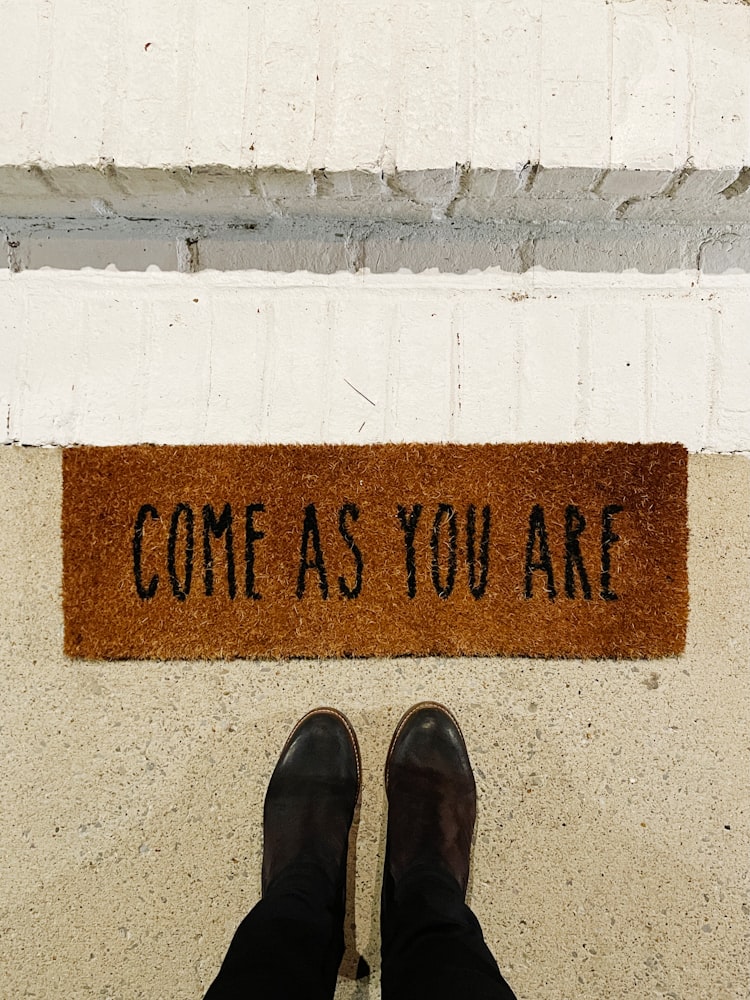On Allyship

I popped a white woman in the mouth once for playing around with the word "nigga" in my presence.
A few years later that same white woman put in work, without my request or prompting, to keep her body between me and the group of cops chasing us down alleyways.
We were at a BLM protest with a small group and, while she and I had come a long way to be civil be in community together, I can't pretend I ever really trusted her to have my back.
She never had before, so she was the last person I expected to protect me that day.
But it just so happens she was the only white person who made an unyielding point to do so.
She kept her eye on me and without hesitation, when the police started initiating panic, splitting us up and driving us down different alleys, streets, and courtyards, she was the one person who simply wouldn't let me out of her sight.
She wouldn't let harm come anywhere near me.
She wouldn't let my body fall between her body and the cops. Even if that meant she had to slow down or stop to maneuver herself differently.
At one point she mom-armed me, telling me to stay in front of her as we turned a corner, being vigilant about keeping her body between me and the cops behind us the entire time.
All of a sudden my #1 op was showing up as my #1 ally.
She took care of me. She protected my life. I didn't have to ask and I certainly didn't expect it.
Seeing allyship in people who don't act like perfect allies isn't as uncommon as we think it is.
We think it's uncommon because we've made it a rule to expect perfect allyship before we can acknowledge that any level of allyship exists.
And we focus so much on that we miss nuance.
Stay with me and reflect on this.
Allyship has never been perfect and it probably never will be.
And we're right to have our guards up because so much allyship is performative.
We already know how often you can find out someone is a performative ally, because you see them fall back when stepping up would've been the critical move.
I've experienced that at those same protests.
But what we don't talk about enough is how sometimes people you didn't think were allies end up being the ones who show up where it counts most.
Who will argue with you on political & social theory but when shit gets real they suddenly say "No. Not this. Not on my watch."
None of this shit in life is black and white. That includes allyship.
We need allies to continue to learn what it means to be an effective ally and - I think what we're really going for - a whole ally. We need allies to develop the capacity and courage to show up fully and holistically.
To see that the things they may find "inconsequential" now - like basic acts of considering and upholding dignity and humanity - are often the very things that prevent us from ever having to be chased down alleyways to begin with.
And.
We need to know that imperfect allies can still save lives and do work that matters, like the one that might've saved mine that day.
I think it's important to hold both truths at once.
I think it's important to understand that we can give credit where it's due when that happens, without discrediting the rest of the work that still needs to happen, or the harm that someone has contributed when they stepped out of line.
I think if we want whole allies we need to learn to give whole feedback.
We can hold space for how one person failed us or showed up as an op, and how that same person protected us and stood up for us in ways that really matter.
We also need to understand that if we want performative allyship to stop, we need to start recognizing what authentic allyship looks like when we see it. We need to embrace it for what it is now as we continue to work with it and develop it into what it could be.
We need to learn, notice, and acknowledge acts of authentic allyship.
In my experience, authentic allyship will be flawed as hell. It'll be imperfect if for no other reason than the fact that perfection doesn't exist. To add to that, it'll be incomplete. It'll feel contradictory. Like the person in my story.
How does the racist white woman also exist as an ally? How do both of these identities coexist in the same body?
Even within our own communities we will find allyship show up as imperfect, contradictory, and incomplete.
And that will continue to be confusing, suspicious, frustrating and at times disheartening.
It will continue to be an important thing to address and be accountable to resolving and working through.
But the other thing to address is that authentic allyship will also be honest. And that honesty will make it functional in ways performative allyship simply never could be.
For all her faults and all our mess, she didn't pretend to have my back in the ways she didn't have my back.
She didn't try to win my favor or fake her way into my good graces.
As infuriating as that was for me when she would say shit I would find problematic and racist, it was very honest of her to allow me to see where she stood on issues that matter to my humanity.
Her honesty granted me agency in my relationship with her. It let me know the ways I couldn't rely on her or trust her, so I knew up front not to go to her for those things. I could choose where to give her chances, where to address conversations, and in what ways to keep my distance.
Her honesty was a gift because she never surprised me in ways that threatened my life.
Only in ways that protected it.
She didn't perform. I also didn't perform.
We butt heads. A lot.
Our relationship, as tense as it was, was founded on a meeting of truths. Mine and hers.
So when she also refused to let cops near me who were looking for excuses to pull triggers that day, her allyship was also just as honest, just as authentic, as everything else I'd seen of her.
I'll never forget it.
Real enemies let you die and feel relief at the sight of you disappearing.
Fake friends let you die and benefit from the sympathy and attention it grants them.
She showed up as neither of those things.
There was no clearer way for her to show me - with unprompted action - that she was not my enemy.
Maybe she's an op when it comes to black dignity and what it means to have understanding and empathy for what it means to be black in America. That might be fair to say.
But she is not an op when it comes to black lives.
When it comes to black lives she showed me she was an ally.
That was the day I learned allyship is a spectrum.
She showed me she fell in a life-saving and protecting space on that spectrum where others fall into support roles, dignity-preserving roles, or, purely performative roles.
We butt heads because she had limits in how she would consider my humanity and experience and I won't forget that, but she also had some firm limits on the harm she would allow to come to me without her intervention.
I won't forget that either.
We aren't friends. My respect for her doesn't extend to me pretending to like her any more than she pretended to like me. And it wouldn't surprise me if we disagreed about political and justice theories and perspectives if I met up with her today.
But it would be false for me to strip her completely of acknowledgment of allyship.
She earned her place on the spectrum of what that word means to me.
Acknowledging the whole truth includes acknowledging the levels of things.
Nuance.
Acknowledging the truth of her allyship changes nothing else about how imperfect or incomplete that allyship was or is.
If she ever played with the word "nigga" in my face again, I'd pop her again. But you won't hear me discredit how she showed up for me that day.
You won't hear me call her an enemy of black lives, because she showed me otherwise. And she showed me that without being asked, and without asking for anything in return or ever mentioning it afterward.
She simply understood the assignment.
To take that away from her would be to rob myself of the awareness that I might have life-saving allies in unlikely places.
I have no desire to do that to either of us.
Food for thought.
Tori
P.S. Learning to hold two seemingly conflicting truths at once can be hard, painful work. It's the work of releasing denial. Of learning two things can be true at once.
And this opens doors and creates space for more safety, more opportunity, more resolution, more confidence, more trust in yourself and others with a clear awareness of where the boundaries of that trust begin and end.
Learning that things aren't black and white in relationship, in community, and inside of you, is a huge part of healing work. Both individually and collectively.
It helps us see the world, ourselves, and our relationships for what they really are. Which helps us navigate them in healthier, more realistic ways.
If you're experiencing confusion and cognitive dissonance, be it political or personal, I'm happy to support you in finding the whole truth of your situation, and learning to build confidence and trust yourself as you work through it.
You may find comfort in learning that the person you popped in the mouth lowkey has your back where it counts, even without your performance.
Check the bookmark below to see what working with me looks like.




Member discussion